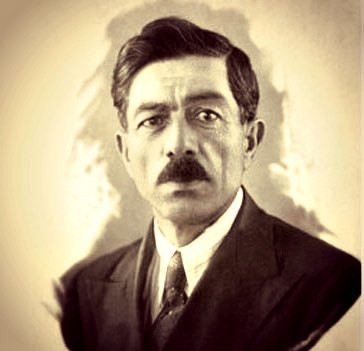Aliaga Vahid: Genius of ghazals

By Amina Nazarli
One of the great romantics of the first half of the 20th century, Aliaga Vahid, is considered to be a poetic gem of Azerbaijan. His ghazals were so popular among the people that he was nicknamed “Khan of the ghazals.”
Despite he did not have a higher education, thanks to his extraordinary skill, Vahid proved that one becomes the writer not by deeds but by birth.
He is assumed to be the founder of meykhana, the modern genre of ghazal, which was prohibited in Azerbaijan during the Soviet period.
Unlike, other poets, who were awarded dozens of medals, Aliaga even did not have the chance to shine on TV. What made the poet popular among the people was his sincere poetry.
Being a man of the people, and idol of meykhana ceremonies, Vahid was very close to his people, which was the reason why the nation loved him so.
In his satirical poem, Vahid revealed the society drawbacks, and condemned the prejudices, tyranny and injustice.
The successor of the Fuzuli traditions, who was the classic of the national poetry, Vahid was an outstanding representative of the ghazal genre in the Azerbaijani literature.
Ghazal is a poetic form consisting of rhyming couplets and a refrain, with each line sharing the same meter. Ghazal may be understood as a poetic expression of both the pain of loss or separation and the beauty of love in spite of that pain.
The main attraction of his ghazals was that, alongside using classical features in his works, Vahid wrote his poems in a simple and easy manner, understandable for all readers, but at the same time full of philosophy.
His ghazals were distinguished with simplicity of poetic
language, and beautiful sonorities and therefore they have occupied
an important place in the repertoire of the national singers, who
are called here as khanende.
His ghazals very suited the national music -- Mugham, Azerbaijan’s
unique musical and poetic phenomenon, recognizing as a masterpiece
of UNESCO’s Oral and Intangible Heritage of Humanity. Many mughams
were sung on his beautiful poets.
Born in 1895 in Baku, he had very hard life. Being the son of a carpenter, Vahid from his early years worked as a laborer, helping his father.
Poverty in the family forced a young man to quit school and work in different occupations including carpenter.
Despite the fact he liked the profession inherited from his father, he could find himself only among the creative people and gained a prominent position in society.
The poet entered into a literary circle, where he met with prominent poets of that time. Under their creative influence he wrote his first lyrics.
He began to write and publish poems from the age of 18-19. The eminent poet's first book was published under the title "The consequence of greed," where he promoted the love of the motherland, hatred of the enemy, and a sense of confidence in victory.
Vahid was also engaged in translation of ghazals of Nizami, Fuzuli, Khagani and other classics into Azerbaijani language.
The love to Vahid’s indulging ghazals made famous sculptor Raghib Hasanov create a unique bust of the poet, whose body and hair are engraved with the heroes of the poet’s poems.
Brilliant poet, deceased in 1965, created the imperishable ghazal drawing inspiration from the depths of historical traditions.
--
Amina Nazarli is AzerNews’ staff journalist, follow her on
Twitter: @amina_nazarli
Follow us on Twitter @AzerNewsAz
Here we are to serve you with news right now. It does not cost much, but worth your attention.
Choose to support open, independent, quality journalism and subscribe on a monthly basis.
By subscribing to our online newspaper, you can have full digital access to all news, analysis, and much more.
You can also follow AzerNEWS on Twitter @AzerNewsAz or Facebook @AzerNewsNewspaper
Thank you!
